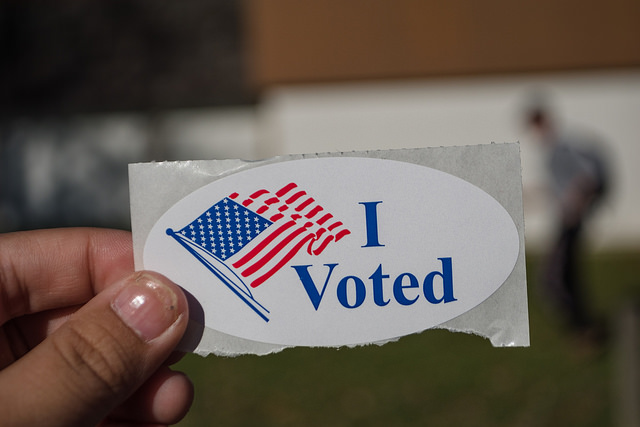I have an apostrophe in my last name. Usually, it’s not too much of an issue. In countries like Ireland or Italy, where apostrophes and special characters are common in names, computer systems can run into issues processing non-alphabetic characters in a person’s name. In other aspects of life, it seems like a minor inconvenience. Bubbling in Scantron forms for exams, making reservations at a hotel and getting a membership at a gym have all caused minor issues for me because of the troublesome apostrophe.
Recently, I found that this list of inconveniences also includes registering to vote. I’m someone who has the ability to read the instructions and fine print, yet it took me 20 minutes to realize that my state registration lacks an apostrophe, meaning my voter registration would need to be similarly apostrophe-less. Because I live and work in an environment that encourages me to be proactive about registering, I was able to catch this mistake early on and resolve it with only a few hiccups. However, not everyone has the advantage of living in a place where voting is so easy.
I was reminded of my bad experience registering to vote when news broke of Georgia’s exact match law, a policy put in place by Georgia Secretary of State and current gubernatorial candidate Brian Kemp, which the Washington Post describes as having the capability to disenfranchise nearly a million people, roughly 70 percent of whom were minorities. The Kemp campaign has been heavily criticized for the conflict of interest posed by a candidate overseeing his own election, and his opponent Stacey Abrams believes that this new policy is a deliberate attempt to disenfranchise likely Democratic-leaning demographics.
The obvious criticism of this complaint is the one that Kemp’s office still defers to. The exact match law is on the books, according to the Kemp camp, and it’s the secretary of state’s duty simply to enforce it. However, Kemp started the rule in 2010, and agreed in 2017 not to enforce it anymore because of a court settlement against civil rights’ groups. Only two months later, the Georgia state legislature codified the rule into law despite the Kemp settlement’s tacit admission that the rule was more about discouraging certain demographics from voting than about stopping voter fraud.
This is a blatant and brazen attempt to steal an election. This is not the first time that Kemp has misused his public office to compromise the integrity of the election process. In 2017, shortly after a lawsuit by election reform advocates to eliminate the state’s unaccountable and easily hackable voting machines, the state’s election server and its backup records were inexplicably deleted. The Kemp campaign unsurprisingly denies ordering this, but his role supervising this process has led many to question his truthfulness. Had the plaintiffs been given access to the election records, they were hoping to find evidence indicating that the voting system was hacked during the 2016 election, and the Kemp team would have a vested interest in preventing these records from coming public if this were the case.
Alone, neither the exact match law nor the wiping of the election server is a smoking gun. When considered together, though, it’s clear that Kemp wants to steal an election by disenfranchising voters. In a race where both candidates are essentially tied, one candidate is trying to gain the edge by misusing his power to suppress votes.
Separate from the exact-match law is another heavily-criticized policy that unregisters people from voter rolls if they have not voted in the past two elections. Some estimates say that this disenfranchises roughly 100,000 eligible voters in Georgia, many of whom planned on participating in the 2018 midterms. Proponents of restrictive voting laws may point to voter fraud as a justification, but President Trump’s own commission on voter fraud, headed by Kansas Secretary of State Kris Kobach, failed to find any evidence of significant voter fraud. In short, these laws are not there for their stated purpose.
Let’s be clear: “use it or lose it” doesn’t apply to any of our other rights, and it shouldn’t apply to the right to vote. In Massachusetts, we are lucky to have automatic voter registration beginning in 2020, and more states should follow our lead. If billions of people can be registered on a social media site without hassle, there is no reason for state election systems not to have automatic voter registration.
I realize that I am lucky to be from Massachusetts, where public campaigns have encouraged me to register early and where the system is designed to make it easy to register, even if my apostrophe gives me some troubles. In Georgia, the powers that be clearly do not have the same priorities at heart.
Edridge D’Souza is a Collegian columnist and can be reached at [email protected].




















NITZAKHON • Oct 24, 2018 at 8:46 am
Democrats have been stealing elections since forever. You’re just upset we’re finally woke to that and working to prevent it.